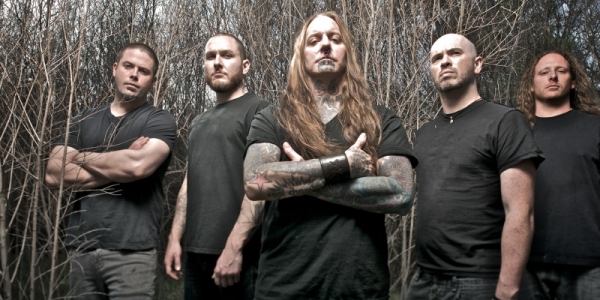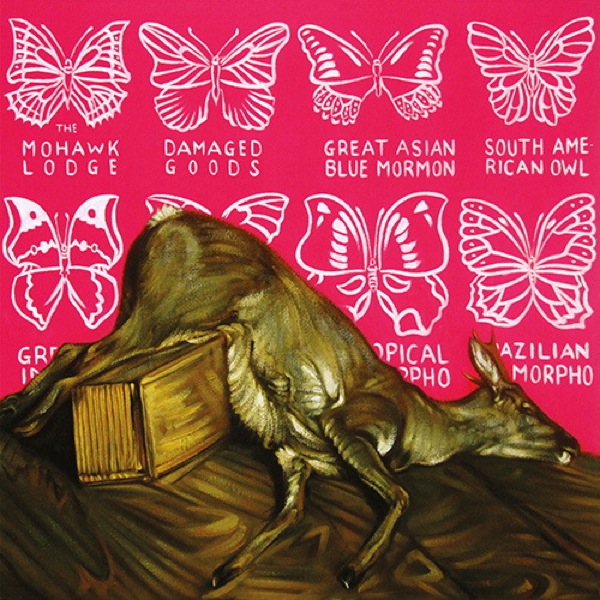“After 20 years I really got sick of being away from home,” he notes. Fafara is covered in tattoos. Even his head and chin is adorned in tribal patterns. The first impression of Fafara isn’t ‘dedicated family man’ but balls-to-the-wall rock star.’ Fafara consciously doesn’t fall into the rock’n’ roll lifestyle. “I don’t take my work home,” he explains. “I’ve never let the ego that I need to do the things that I do effect my personal life. The singers that do? They leave their wives and end up with a cocaine problem.
“They end up doing cocaine and crashing their car on a freeway. I never wanted to be that man. I come from a working class background. I was on the job site, bricklaying when I got the call when I first signed my record deal. When I first moved to Los Angeles I lived under bridges and stole my food from [convenience stores.] I remember all that.
“I never let the ego or the ID take me over,” he continues. “I hold my family first. It really helps that I’m a hermit, a loner. Completely socially awkward,” he laughs. “After shows, as soon as the bar filled up I could feel my palms sweat. Point a mic at me in front of 100,000 people, I’m good. Sitting in that kind of circumstance…I’m out!”
The recording of Winter Kills took every liberty modern technology affords bands these days. His new home studio meant he could keep his “hermit” comfortable and stay close to his wife and kids. “In metal, for a craft that’s kind of edgy,” he says. “To be displaced or to be put outside of yourself would give you some extra angst that you can use with the music. I found it to be the opposite. It started to take away everything from me.”
The rest of DevilDriver weren’t even required on site. It’s more inner sanctum than studio. It lent him a new energy that exceeded his own expectations.
“You gotta see my studio,” he says, beaming with pride. “It’s got black walls, black carpet, one orange wall with macramés and candles everywhere. It gave me the vibe that I wanted.
“Usually, we’re sharing studios with a bunch of other bands,” he explains, contrasting their earlier process. “So everyone’s hanging out in the lobby and this and that, and I really got tired of that. The guys recorded the music at Audiohammer with Mark Lewis. Myself, I realized there was a lot of lightning in the bottle.
“Mark said the same thing, once we started tracking it just started rolling for us. I didn’t demo the songs on this record, and we were laying down songs in 15 minutes. Because we weren’t paying for studio time and if we got it first hit, we’d take the day off. When you get that first take thing happening on a whole record? It’s magic.”
12 years on as DevilDriver, formed in the aftermath of nu-metal stars Coal Chamber’s drug-fuelled implosion, Fafara feels they’ve achieved their unconscious goal of “making good music from the heart and getting it out to people.” Adopting touring schedules that would madden veteran travellers, their exhaustive stage pounding has paid dividends.
“We’ve been around for a while, we’ve managed to tour all over the world and get a pretty strong fanbase,” he says. “Every record we’ve done has some growth to it. That in and of itself is something we’ve achieved. We’ve never remained stagnant, you’re never going to get the same record twice. I think we’ve achieved what we wanted to. I just want to keep growth going. I think we’ve done that.”
Growth and rebirth is at the heart of DevilDriver, the band representing a “rebirth” of Fafara’s musical journey after Coal Chamber.
“I love the rebirth of things,” he says with reverence. “I love planting seeds and eight months later, there’s the plant. I love that. I think it’s important so you don’t get stagnant. But that said, I don’t really like change. Like I ask my wife if she’s changed something in the house and I say ‘why did you do that?’ In art, you need change. You need to grow. You need to adapt and you need to better yourself.”
BY TOM VALCANIS







